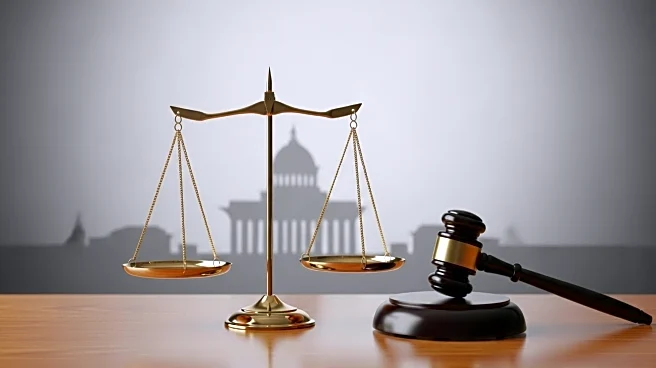What is the story about?
What's Happening?
Several leading law firms have reportedly provided free legal services to the Commerce Department as part of settlements with the Trump administration. This has raised concerns among Democrats, who have sent letters questioning the legality of these services and demanding detailed responses by October 6. The issue revolves around the Anti-Deficiency Act, which requires existing appropriations to support any government contract or commitment of funds. The provision forbids acceptance of 'voluntary services' except for emergencies involving human life or property protection. The administration's use of free legal services from law firms, allegedly in response to adverse actions like revoking security clearances, poses a significant threat to congressional authority.
Why It's Important?
The provision of free legal services by law firms to the government, particularly in the context of tariff negotiations, challenges the traditional checks and balances between Congress and the executive branch. Congress typically controls agency budgets to monitor and influence policy enforcement. By circumventing appropriations and utilizing private assistance, the administration potentially undermines congressional power. This situation highlights the tension between executive authority and legislative oversight, raising questions about the separation of powers and the integrity of government spending practices.
What's Next?
Congress may seek to address this issue by reinforcing the Anti-Deficiency Act and ensuring that any use of private resources by government agencies is authorized. The situation could lead to legislative actions aimed at preserving congressional oversight and preventing future administrations from bypassing appropriations. The response from the law firms and the administration will be crucial in determining the next steps, as Congress evaluates the implications of these free services on its authority.
Beyond the Headlines
The controversy over free legal services reflects broader concerns about executive overreach and the potential erosion of legislative power. It underscores the importance of maintaining clear boundaries between government branches to ensure accountability and transparency in public administration. The situation may prompt discussions on reforming government contracting practices to safeguard congressional prerogatives.


















